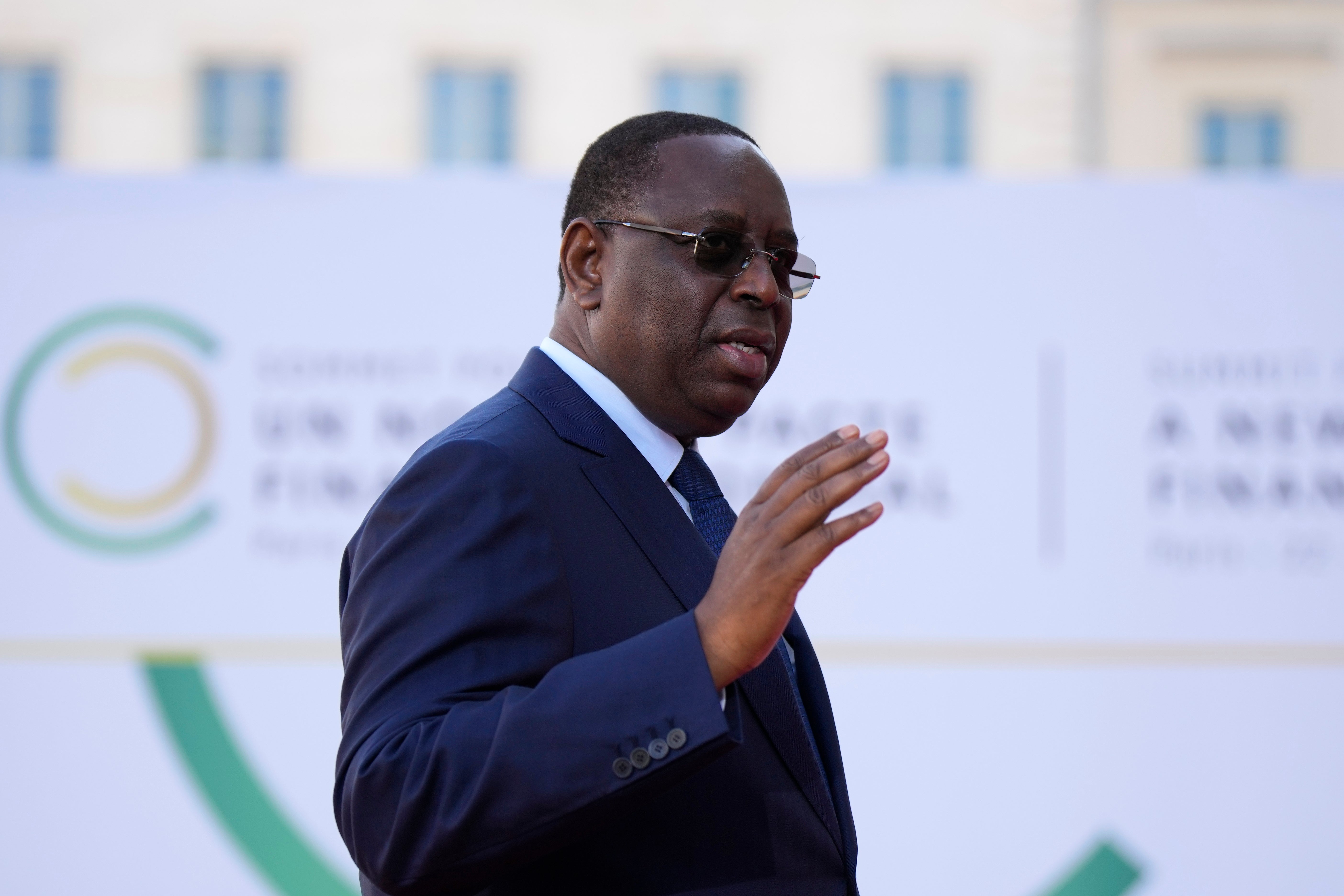Senegalese President Macky Sall says he won't seek a third term in 2024 elections after protests
Senegalese President Macky Sall says he will not seek a third term in the presidential elections set for February

Your support helps us to tell the story
From reproductive rights to climate change to Big Tech, The Independent is on the ground when the story is developing. Whether it's investigating the financials of Elon Musk's pro-Trump PAC or producing our latest documentary, 'The A Word', which shines a light on the American women fighting for reproductive rights, we know how important it is to parse out the facts from the messaging.
At such a critical moment in US history, we need reporters on the ground. Your donation allows us to keep sending journalists to speak to both sides of the story.
The Independent is trusted by Americans across the entire political spectrum. And unlike many other quality news outlets, we choose not to lock Americans out of our reporting and analysis with paywalls. We believe quality journalism should be available to everyone, paid for by those who can afford it.
Your support makes all the difference.Senegalese President Macky Sall declared Monday evening that he will not run for a third term in next year's elections, ending years of uncertainty over his political future that had helped fuel deadly opposition protests last month.
Top opposition leader Ousmane Sonko already had called for more demonstrations around the West African country in the event Sall had instead announced his intention to run again in February.
In a speech carried live on his official Facebook page, Sall maintained that Senegal's constitution would have allowed his candidacy despite having already been elected to a second term in 2019.
“Even if I have the right, I felt that my duty is not to contribute to destroying what I have built for this country,” Sall said. “I had said that the 2019 mandate was my last mandate. I know that this decision will come as a surprise to all those who have a friendship with me. Senegal is more than just me, it’s full of people capable of taking Senegal to the next level.”
Sonko had long called for the president to bow out of the 2024 election publicly, accusing Sall’s government of bringing court cases against the opposition leader in an effort to sideline the competition ahead of February's election.
There have been widespread fears that Sall’s declaration about his political future could spark new waves of unrest throughout the West African nation long viewed as a bastion of stability in an otherwise politically turbulent region.
Already, a wave of deadly protests erupted last month over a court case in which Sonko was sentenced to two years in prison after being convicted of corrupting youth. The government says at least 16 people died in the unrest, while the opposition has put the figure higher at 19.
Sall became Senegal's president in 2012 after prevailing against an incumbent president, Abdoulaye Wade, whose decision to seek a controversial third term prompted violent street demonstrations. Wade ultimately conceded defeat after a runoff between him and Sall, his former protege.
In 2016, Sall amended Senegal's Constitution to set a two-term presidential limit. His supporters maintained that his first term under the prior constitution shouldn’t count though. As recently as this past weekend, Sall was heard saying that the country's Constitutional Council would allow for his candidacy, fueling speculation he would announce his third term bid.
In his speech Monday, Sall asked the government to do everything possible to organize a transparent election in February. It was not immediately clear who might run on the ticket of Sall's political party.
A number of African presidents already have tried staying in power in recent years by modifying their constitutions first, including Ivory Coast’s Alassane Ouattara, who won a third term in 2020. Another, Alpha Conde of Guinea, won a third term that same year too but didn’t stay for long: A military coup removed him from power less than a year later.
Bolle Fall, who works as a guard in the Plateau district of Dakar near the presidency, said he was hoping Sall would win a third term.
“What I want is to leave him be," Fall said, expressing concern about the recent opposition protests that shuttered local businesses for days at a time. Influencing youth to “attack people, break stores, keep people from working, it’s not good … we have to be civilized,” he added.
___
Associated Press writers Krista Larson and Zane Irwin contributed.